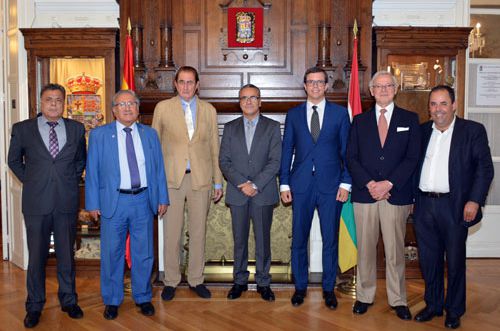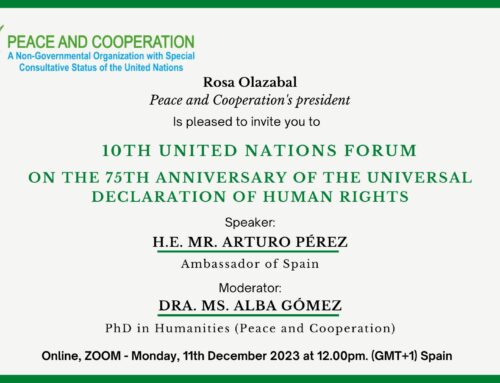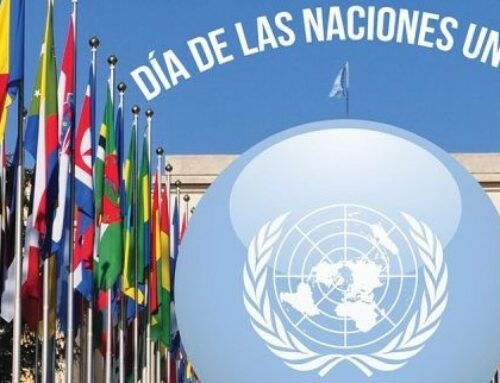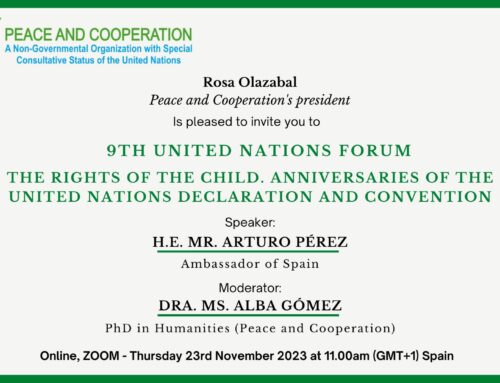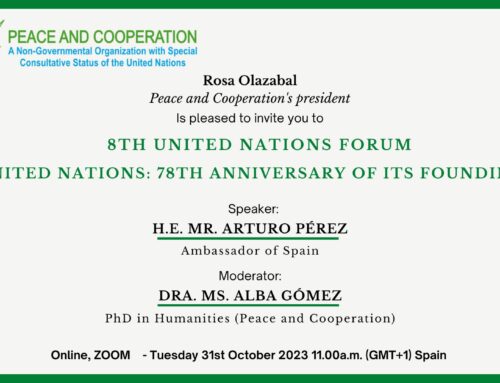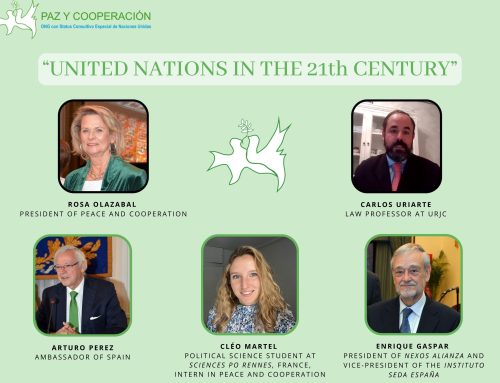On UN Peace Day, Peace and Cooperation and Centro Riojano de Madrid held the II United Nations Forum titled “Tunisia on the Path Towards Democracy”, hosted by the ambassador
of Tunisia in Spain, Wacef Chiha, as well as the founder of Peace and Cooperation, Joaquín Antuña, and the President of Centro Riojano, José Antonio Rupérez.
Rupérez started the conference with his expertise on the high-level quality and history of the wine in a country like Tunisia.
His excellency, Wacef Chiha, proved with his documented dissertation that Tunisia is not only a fully democratic country, but a model to refer to for the whole Arab world. Tunisia’s constitution is very progressive; outstanding for its tolerance and the guarantee of gender equality to Tunisian women.
Tunisia’s national identity began developing in the XVIII century, relying on constitutions from the XIX and XX centuries. While he did not refer to the colonial period, he discussed the father of his country, Habib Burguiva, and his party Neo-Destour, which succeeded the liberation of current Tunisia.
He also mentioned the long dictatorship of Ben Ali, who promoted increased tourism and Tunisian international presence with frequent women delegations who displayed the national flag, however at the cost of civil freedoms.
The Arab Spring began with the “Jasmine Revolution” in Tunisia, when Mohamed Bouazizi, a young university student and street vendor, set himself on fire in the city of Sidi Bouzid.
This event took place on the 17 th of December, 2010; on a Friday, which is a day of prayer for Muslims. This revolution put Tunisia on the first page of many international newspapers.
Following the “Jasmine Revolution”, in the square of Tahrir in Egypt, another chapter of this Arab resistance took place, similar to the Italian Risorgimento, though without a Garibaldi.
This protest resulted in the resignation of President Mubarak and the introduction of a democratically-elected President named Mohammed Morsi.
I personally congratulated the ambassador for giving this conference after the presidential elections in Tunisia, where two anti-establishment candidates won over the classic democratic party, whose second turn is pending, as the legislative elections are planned for October. I called him “torero” as those who were around the mayor’s office of Madrid called Gorbachev and Shevardnadze.
His excellency, Wacef Chiha’s courage in politics is evident, as demonstrated by this conference in which he spoke about the importance of deepening democracy in Tunisia, and the full incorporation of women into Tunisia’s political and social life, while supporting his claims with data and journalistic and bibliographic references. Thus, Chiha deserves a great
applause.
There was an abundance of audience members, who crowded the Salón de la Lengua and marked a milestone for the United Nations Forum with over a hundred participants. The audience included honourable guests and the last class of graduates of Spanish diplomats, as coordinated by the Vice-director Luis Solís, who demonstrated a deep preparation in the questions posed to the ambassador. A new success pinpointed by the dynamic Fernando Fernández Arias Ambassador-Director of the Escuela Diplomática.
Among those who attended the conference are: ambassador Elizabeth Adjei of Ghana, ambassador Bachar Yaghi of the Arab League, ambassador Musa Amer Odeh of Palestine, and the outstanding Arturo Pérez Martínez and his many associates of Centro Riojano.
To conclude, the event included an enlightening discussion, a great gathering of a diverse group of people, and a brilliant location: Centro Riojano – a hub of great events, where one can come to think and taste splendid food and wine.

